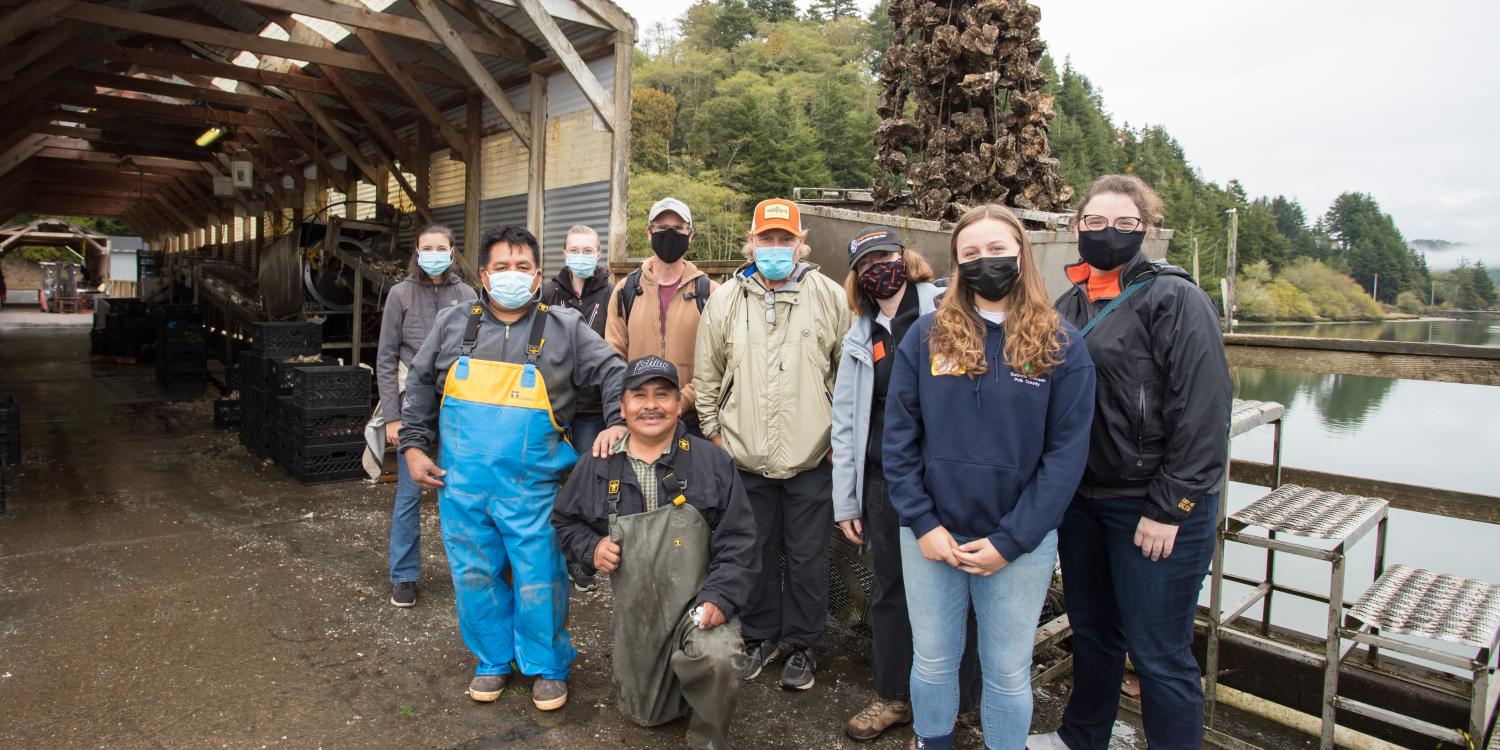
Coupled with broad, societal misconceptions about food and agriculture, an aging crisis is threatening farming. According to the 2017 Census of Agriculture, the average age of an American farmer is 57, 10 years older than the average age of a farmer in 1945. Less than 2% of the American public lives on a farm, which presents challenges for connecting young people to agriculture and potentially inspiring them to see a place for themselves in agriculture.
To inspire and cultivate the next generation of farmers, young people need to hear authentic perspectives and stories of Oregon’s agriculture. At the same time, young people need access to education that is engaging and immersive and can demonstrate how agriculture has evolved in the 21st century. Young people need experiences that illustrate how technology, science and community is impacted by agriculture. Examples include urban farming, decisions driven by sustainability, and technology that creates efficiency and conservation of natural resources.
In response, the Oregon State University Extension Service 4-H Youth Development Program is partnering with OSU’s Precollege Programs and the SMILE Program to develop and implement DIVE4Ag – Distant Immersive Virtual Education for Agriculture Literacy. The diverse members of the DIVE4Ag team worked together to develop an open source, distance education toolkit focused on agriculture that will connect youths, educators, and K-12 classrooms to experiential learning.
DIVE4Ag leveraged the strengths and expertise of more than 30 partners and collaborators to create five virtual reality apps that youtsh and educators can use to explore and learn about diverse agricultural systems. The team is partnering with Timelooper, a virtual and augmented reality mobile platform and app development company, to bring Pacific Northwest youths a level of immersive learning only second-best to being on the sites in person. Virtual reality is a computer-generated simulation of an interactive, 3-D environment. VR experiences typically require the use of headsets, hand-held controllers and other electronic equipment that allow a person to interact with the simulation. The five apps focus on:
- Agroecology, which is an applied science that studies ecological processes applied to agricultural production systems.
- Aquaculture.
- Dairy farming.
- Rangeland and cattle.
- Equestrian farms.
As a result of six months of virtual meetings and planning as a team, DIVE4Ag Teens as Teachers came together in 2021 to bring their ideas to life. They traveled across Oregon and Washington to a weekend retreat at the Oregon 4-H Center west of Salem and a day of filming at OSU’s Oak Creek Center for Urban Horticulture. The teens narrated their scripts with a cartoon-like voice to bring an animated bee to life. They coached each other in front of a green screen to become holograms to introduce agroecology. They deliberated around a computer screen to select the best 360-degree images to represent high-level concepts such as species accumulation, rivet hypothesis, and functional diversity.
The teens took the lead on making important production decisions about how best to capture, animate and narrate the agroecology experience for a virtual reality app that will be used by their peers. In this process, they found their voice, helped each other, and developed leadership and public speaking skills. Evaluations so far suggest the DIVE4Ag Teens as Teacher program provided the right balance of guidance and tools necessary for success, while creating space for the teens to problem solve and learn when creating virtual reality and augmented reality apps. Many of the teens wanted to sign up for a second six-month commitment with the Dive4Ag program. The teens said they felt challenged to create but all recognized that being given the space to critically think, lead and create was an experience they will carry through their lifetime.
The DIVE4Ag teens experienced impactful learning with the help of innovative technology. The open-source toolkit and VR apps will bring immersive agricultural learning to living rooms and classrooms alike with the goal to connect youths to ways agriculture impacts their lives and their communities.
This work is supported by the Agriculture and Food Research Initiative, Education and Workforce Development Program [grant no. 2021-67037-33379/project accession no. 1024985], from the U.S. Department of Agriculture, National Institute of Food and Agriculture.